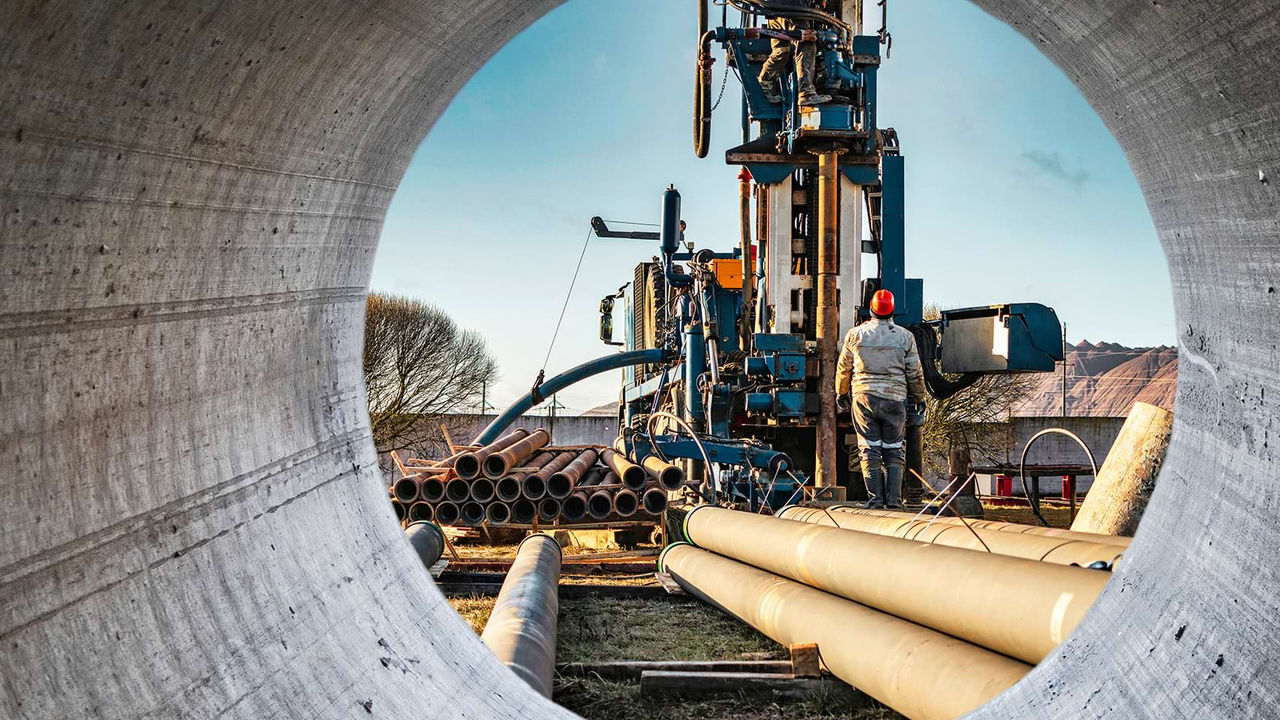
The art of navigating high-pace resource disruptions in the world today
Circular economy

The demographic explosion, changing consumer demands and expectations, trade wars, resource scarcity and price volatility and climate change. These are just a few examples of the social, economic, environmental and geopolitical drivers that organisations, industries and governments have to take into account to retain their licence to operate and create and maximise value for all their stakeholders.
These factors
challenge your value proposition
disrupt your supply chains for the resources you need and the goods and services you produce and sell
change what and how you produce and deliver your products and services
force you to “prove” instead of “show” your performance on ESG topics and standards for your supply chain and products.
Social media can be lethal snipers with a potentially devastating impact on your reputation and licence to operate.
But at the very same time these challenges also
create opportunities for innovation, growth and potential new profit pools
redefine the road to sustainable customer intimacy and satisfaction if you take them seriously
Create huge potential for building inclusive closed loops supported by digital ecosystems for resources and services
lead to sustainable resilience and increased shared value across the value chain
improve E-to-E traceability and transparency for your products and resources using digital ecosystems to build customer trust
shift the paradigms on value and the licence to operate for organisations to grasp or lose.
The Circular Economy: your lighthouse for resource related challenges
Depending on your specific situation and objective, we help you:
understand the impact of one or more of those challenges on your business and operations
develop circular strategies and roadmaps for seizing your opportunity in the market
mainstream and transform your business model and operations intra- and extra-muros, to become sustainable or to respond to specific challenges or to realise your objectives
transform your value chain and supply chains to reduce cost, become compliant with new regulations and standards such as the EU taxonomy and the European single use plastics directive
- optimise your current processes and operations to realise your circular targets or increase their performance
- design or integrate digital tools to build and support your new business models and resource strategies (block chain/control tower concept)
As a starting point we have two distinct approaches, on the basis of which we develop with you your customised circular economy programme.
- Discovery approach
- Strategy and transformation (including optimisation)
Discovery approach: what can CE offer you in 4 steps?
We help you understand how the circular economy is shaping your industry by looking at your competitors, mega trends and new technologies available. We define and review with you the goals or targets that are appropriate for your business according to the general strategy. Based on those targets, we support you in defining initiatives to make those goals tangible. Finally, we help you with the planning and launch of your action plan to go circular.
Reimagine your 'world'
Understand the challenges for your business that relate to resources (or value chains)
Identify trends around circularity (or sustainable value chains) in your business
How are enabling technologies, regulations and customer demands around circularity changing?
What initiatives are competitors launching?
What does full circularity look like in your business?
Define performance, ambition, strategy and capabilities
How has your circular performance developed over the past years?
What is your circular ambition for the future?
How fit for future is your strategy?
What are key differentiating capabilities you can leverage to become circular and which capabilities do you need to develop?
Enable initiatives that shape your future
Which capabilities do you need to focus on to materialise your circular strategy?
What initiatives/investments are required to build these capabilities?
How does the strategy impact your operating model – i.e. how should you organise yourself?
How can people and culture contribute to your strategic direction?
Plan / Launch support structure to allow you to deliver
What is the financial impact of a renewed strategy?
What does the execution roadmap look like?
What are the critical enablers that need to be in place for your strategy to work?
What is the immediate action plan that your teams can execute on?
How to create company-wide buy-in for the renewed strategy
Strategy and transformation (including optimisation) approach in 5 major steps
We have developed a 5 step approach. Each of these 5 blocks can be delivered separately depending on your specific needs and where you are on this journey.
We build together the desired and relevant scope of activities adapted to your situation to ensure you maximise value when calling on us for support.
An important vehicle to achieve identified targets is the control tower. It lies at the heart of the created ecosystem when closing the loop, and it maximises the value of the resource across the value chain.
Define your vision
We help you develop your vision and targets for your resource challenges and opportunities.
We assist you in defining your targets, your preferred role and the boundaries and framework to connect the various critical workstreams to realise your ambition.
Assess the risks and opportunities before prioritising your transformation waves
We help you assess the critical strategic risks and opportunities from a 360 degree point of view. This enables you to create the building blocks for several scenarios to reach your targets.
We help you prioritise the waves (time/focus/geography) for transformation and operationalisation.
Design and select scenarios
We help you to develop relevant scenarios to reach your targets from different interconnected workstreams *
We assist you in prioritising and selecting the most successful or promising scenarios, as well as the identification of the relevant CSF and KPI.
* finance & control / operations and infrastructure / legal (incl tax) & regulatory / governance / stakeholders / technology and reporting tools and instruments.
Construct and implement your preferred scenario
We construct and build together every single step and dimension of your chosen scenario right up to the operational phase, and turn your objectives into reality.
In addition to this, the control tower and ecosystem (if taken) is set up at this stage.
Support and optimise
We remain close at hand to ensure that teething problems are resolved, that the new model is working properly and that the expected outcomes are monitored and improved.
If you prefer, after ensuring that everything is up and running properly, we can organise a smooth hand-over at the moment your teams are ready to fly on their own.
Bringing together our leading practices and experts to shape your circular world

Footprint of the PwC Belgian team (2020)
We assist a vast number of captains of industry, stock listed and family owned businesses and entire industry sectors. We have been instrumental in assisting scores of governments across the world in the drafting and optimisation of government policies, regulations and economic instruments. We help drive the transition to sustainable resource management and a circular economy.
Examples of industry sectors include: food and beverages, automotive, tyre industry, consumer & retail, manufacturing, chemical sector, health & well being and the public sector.
PwC Belgium is a leading Centre of Excellence in the field of Circular Economy strategy and transformation.
Our involvement has created sustainable and cost-efficient resource markets, and has transformed industries, supply chains and companies.
To make circularity deliver its best for your purposes, we combine our skills with other key capabilities inside our firm such as supply chain; tax, technology, people & organisation and legal aspects. We look at the big picture, designing and customising processes to the client's specific needs. We call this serving Clients from Strategy through Execution.
Leveraging the power of digital technologies for circular ecosystems
Closing the loop for resources across the value chain is very complex since it involves a huge myriad of stakeholders; markets and regulations in a globalised world. Developing and realise long-term sourcing strategies and product innovation programmes encounter the very same issues in terms of availability of trusted data; alignment of processes; access to market; etc.
The digital revolution - Industry 4.0 has brought tools and solutions that enable and speed up the transition towards a circular economy:
- It enables the creation of connected ecosystems generating the backbone for the effective management, innovation and maximization of the resource and development of inclusive and resilient markets.
- It closes loops for securing access and reducing price volatility.
- It delivers E-to-E traceability and transparency of the resources inside the ecosystem creating trust and reliability in the market (e.g. Blockchain or other tools).
On the other side, the circular economy and sustainable value chain concept are moving the boundaries of traditional Digital E-to-E solutions. They go far beyond the current ecosystems and supply chain models which traditionally end at the first consumer.
At PwC we have merged and integrated the insights and solutions of both sides of the equation. We create solutions and tools that build the control tower your company, industry or country needs to realise your business objectives in a circular digital world.
Our PwC Control Tower concept helps companies, industry sectors and governments to:
|
|
|
|
|
|
|
|
|
Introducing the control tower concept
Securing and maximising the value of resources by gaining control over the supply chain
Contact us


Christoph Vanderstricht
rbr Expert Circular Economy & Sustainable Value Chains | Strategy & Transformation, PwC Belgium
Tel: +32 477 61 92 52










